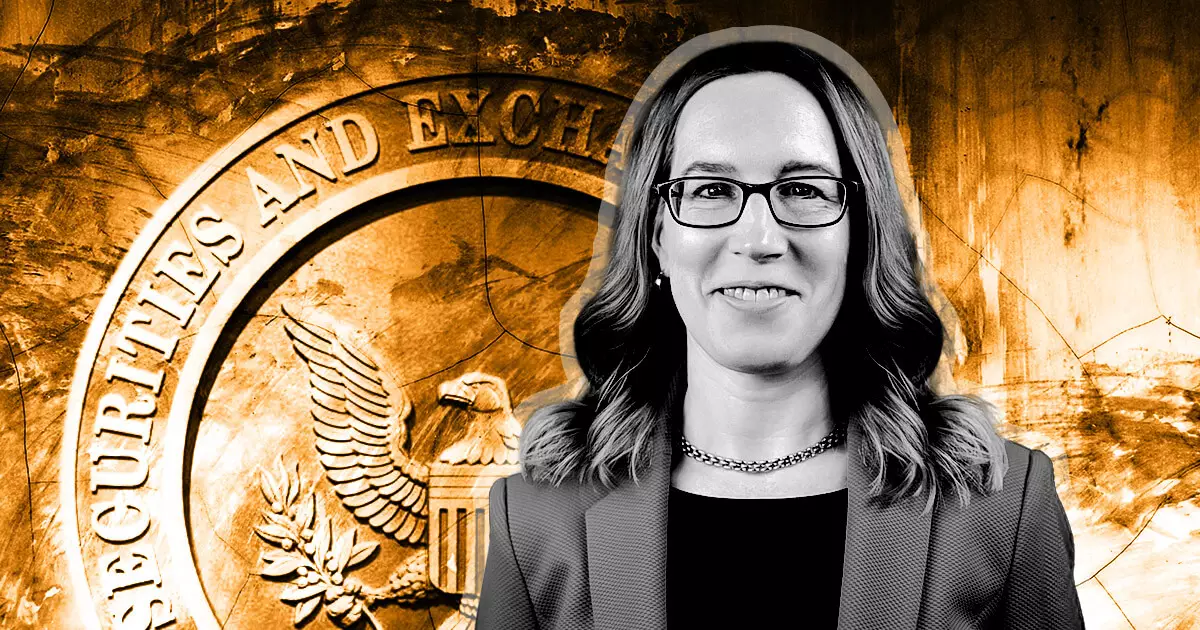In a recent tweet, Commissioner Hester Peirce of the United States Securities and Exchange Commission (SEC) expressed her concerns about the regulator’s stance on transparency in the cryptocurrency industry. Peirce questioned why the SEC wants to discourage good-faith efforts to provide more transparency. This comes in response to a statement made by the SEC’s chief accountant, Paul Munter, regarding the potential censure or suspension of accounting firms involved in auditing crypto companies if their findings are misrepresented. While Peirce acknowledges the need for clarity in proving reserves, she believes that the regulator should not discourage genuine attempts to increase transparency in the crypto market.
Munter’s statement highlighted the risk of accounting firms misleadingly suggesting that non-audit arrangements are equivalent to or more precise than financial statement audits. He emphasized that non-audit arrangements are not as rigorous or comprehensive, and therefore, may not provide reasonable assurance to investors. If an accounting firm becomes aware of a client making misleading statements about the nature of its non-audit work, Munter recommends “noisy withdrawal” or informing the Commission to maintain integrity within the financial reporting system.
The Importance of Independence
Another crucial aspect that Munter emphasized was the need for accounting firms to maintain independence. By doing so, they can strengthen the integrity of the financial reporting system. This ensures that accurate and reliable information is provided to investors and stakeholders, enhancing market confidence in the cryptocurrency industry.
The collapse of FTX last year prompted many crypto firms to introduce proof-of-reserve schemes to demonstrate evidence of their crypto holdings. However, this initiative quickly faced criticism after auditors, including Mazars and Armanino, dropped their crypto clients due to questions regarding the effectiveness and reliability of their reports. This serves as a lesson that while efforts are being made to increase transparency, it is essential to ensure that the auditing process is rigorous and credible.
While the SEC’s concerns about misrepresentation and misleading information are valid, it is crucial to strike a balance between regulatory oversight and encouraging transparency in the cryptocurrency industry. Discouraging good-faith efforts to provide more clarity could hinder the growth and development of the market. Instead, the focus should be on implementing robust auditing practices that provide reliable information without stifling innovation.
Transparency plays a vital role in fostering trust and confidence in the cryptocurrency industry. Investors and stakeholders need to have access to accurate and reliable information to make informed decisions. By promoting transparency and ensuring the integrity of financial reporting processes, regulators, accounting firms, and crypto companies can work together to build a stronger and more trustworthy ecosystem.
As the cryptocurrency industry continues to evolve, the importance of transparency and accountability becomes even more critical. Regulators, accounting firms, and crypto companies must collaborate to establish best practices and standards that promote transparency without hindering innovation. By doing so, they can create a thriving and trustworthy environment that encourages responsible growth in the crypto market.


















